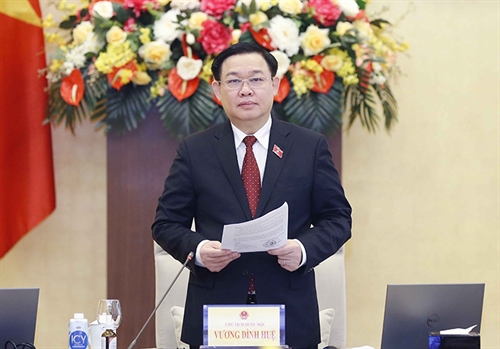It is not uncommon to see a branch participating in daily business activities independently. However, although the Civil Code[1] and the Law on Enterprises[2] contain regulations supporting such activities by a branch, inconsistency in terms of the general principles under the law gives rise to a basic question of how to logically and accurately identify the legal capacity of a branch in civil transactions.
Ngo Thai Ninh and Thieu Dong
Legal person status and legal capacity of a branch of a company
Article 84.1 of the Civil Code clearly stipulates that a branch is a dependent unit of a legal person, not a legal person. Article 44.1 of the Law on Enterprises further provides that a branch is a dependent unit of a company.
Unlike a subsidiary of a company with its separate and independent legal person status and capacity, a branch has no legal person status. It is legally and organizationally an “extended arm” of a company, and to this extent, subject to the legal status and operation of the parent company.
Despite the lack of its legal person status and legal independence from the parent company, it is a common practice in Vietnam, to certain extent, that a branch has been participating in daily business activities “independently like other companies in general”. At this point, certain subtle questions might arise. Supposing a branch does not have the legal person status - a general condition to be a subject of a civil relation, it cannot, logically, establish and perform civil transactions. How could a branch participate in civil transactions in practice? Are there any provisions under the laws and any interpretation thereof to justify such participation?
The Civil Code and the Law on Enterprises are the two legal instruments that set out the underlying legal framework to justify the civil legal capacity, in short, legal capacity, and operation of a branch.
Article 84.2 of the Civil Code provides: “A branch has the task of performing all or part of the functions of the legal person.”
Article 84.6 of the Civil Code also stipulates: “A legal person shall have the civil rights and obligations which arise from civil transactions established and performed by its branches and representative offices.”
Wordings of Articles 84.2 and 84.6 of the Civil Code suggest an interpretation that a branch can be a party to a civil transaction and may establish, perform, and terminate such civil transaction, provided that its parent body, rather than itself, will have the rights and obligations arising from such civil transaction.
Notwithstanding the foregoing, there is some confusion in relation to the subject matter under the Civil Code itself.
First, Article 84.5 of the Code provides: “The head of a branch or representative office shall perform his/her duties as authorized by the legal person within the authorized scope and term”.
 |
| A staff member the Vietnam Bank for Social Policies’s Dong Nai Branch provides guidance on disbursement procedures to customers__Photo: Nguyen Van Viet/VNA |
Such provision has sparked confusion over which person will establish, perform, and terminate a civil transaction that will be binding upon the parent company. A branch of that parent company would do so, or the head of such branch would be the only statutory permissible person who is capable of creating a civil relation within the scope of authorization by the parent company. There is no connection between acts of the head of the branch under Article 84.5 and civil transactions established and performed by the branch under Article 84.6 of the Civil Code. The Civil Code, unfortunately, does not further demystify such confusion.
Article 101.1 of the Civil Code provides:
“Where a household, co-operative group or other organization without legal person status is involved in a civil relation, the members of such family household, co-operative group or other organization without legal entity status are the subjects involved in the establishment and performance of such civil transaction, or authorize their representative to be involved in the establishment and performance of such civil transaction. Authorization must be made in writing, unless otherwise agreed. Any change to a representative must be notified to the parties to the civil relation.
Where a member of a household, co-operative group or other organization without legal person status involved in a civil relation is not authorized by other members as the representative, such member is the subject of the civil relation established and performed by himself/herself.”
Article 101.1 of the Civil Code has determined that the branch, as an “organization without legal person status” as stipulated under Article 84.1 thereof, is not the subject which establishes and performs the civil transaction, but members of the “organization without legal entity status” are. Reading Article 101.1 in conjunction with Article 84.5 of the Civil Code, it is again uncertain who members of a branch of a company as an “organization without legal entity status” are, or whether the concerning members include the head of such branch only, or other staff/employees working for such branch.
Although when reading in parallel with Articles 84.2, 84.5, and 84.6 of the Civil Code, it still seems to be somehow ambiguous in terms of the legal capacity of the branch in civil transactions, the foregoing interpretation of Article 101.1 thereof seems to be commensurate with the fundamental principles of the Civil Code stipulated at the beginning of the Civil Code. In particular, the scope of applicability of the Civil Code is to introduce the legal status, and legal maxims in terms of behaviors of natural persons and legal persons. Article 3 of the Civil Code also sets out the fundamental principles of civil law of Vietnam applicable to every natural person and every legal person, not any entity without legal person status.
In the broad sense, supposing the subject of the civil law would be any subject or entity mentioned by and in the Civil Code, the understanding that a branch of a legal person is also a subject participating in civil transactions would therefore become convincible. That is because the presence of branches in everyday civil or commercial transactions is undeniable, and branches are a part of the process of concluding and performing such transactions under the name of the parent legal person[3].
However, in light of the fundamental principles of the Civil Code, if we strictly interpret that the subjects of the civil law are only natural persons, legal persons, and civil relations as defined in Article 1 of the Civil Code, a branch cannot be the subject of the civil relations. The understanding that a branch is also a subject participating in and executing civil transactions will also be inapposite to the fundamental principles of the Civil Code. The question has arisen as to how the branch would be able to participate in civil transactions. Should the answer be the branch’s participation through the head of the branch pursuant to the scope of authorization by the parent legal entity, it turns out the subject participating in civil transactions is not the branch, but the parent company itself through the authorized representative who is namely the head of the branch. The branch now is just a façade of the parent company which the other parties of the civil transactions may be looking at whereas they are doing business with the parent company by nature. The branch is even more unable to participate in civil transactions through a direct authorization from the parent company because, firstly, the branch is not a legal person, and secondly, the Civil Code clearly stipulates that only natural persons (i.e., individuals) and legal persons (e.g., enterprises) can assume the authorization.[4] The understanding of the branch not being the subject to establish and perform civil transactions have been supported by legal scholars and practitioners,[5] and it is consistent with provisions of the laws in most of the other jurisdictions.[6]
The regulatory paradox of legal authority and legal capacity
Article 44.1 of the Law on Enterprises provides that:
“A branch is a dependent unit of an enterprise with the task of performing all or some of the functions of the enterprise, including the function of authorized representation. The lines of business of the branch must be consistent with the lines of business of the enterprise.”
Article 44.1 of the Law on Enterprises does allow a branch of a company to obtain authorization from its parent company and perform functions, in other words, business activities of the parent company based on such authorization. It is nevertheless contradictory to Article 138.1 of the Civil Code according to which a natural person or a legal person may only authorize another natural person or legal person to enter into and perform a civil transaction. On the one hand, a branch may be able to participate in civil transactions through a direct authorization from the parent legal entity under the Law on Enterprises, but it is not, on the other hand, allowed to obtain such authorization because of its lack of legal person status under the Civil Code.
Article 92.3 of the 2005 Civil Code[7] used to have the wordings similar to those in Article 45.1 of the 2014 Law on Enterprises[8] whereby possibly enabling a branch to assume authorization from its parent company to perform the parent company’s business activities. The prevailing Civil Code has removed the function of authorized representation in Article 92.3 of the 2005 Civil Code meanwhile Article 44.1 of the Law on Enterprises maintains such wordings in terms of the function of authorized representation from Article 45.1 of the 2014 Law on Enterprises.
The foregoing legislative inconsistencies between Article 138.1 of the Civil Code and Article 44.1 of the Law on Enterprises have caused many discrepancies in the determination of either a legal person or its branch to be a party to a civil transaction.
The discrepancies have become critical in terms of resolving one of the consequences of the civil transaction-disputes. Given the scope of the application of the Civil Procedure Code[9] is much broader than that of the Civil Code, any (economic) organization which may include any such “organization without legal person status” as a branch of the company would fall into the scope of the application of the Civil Procedure Code[10] and thus, be able to instigate a claim under the Civil Procedure Code.[11]
From the perspective of the courts when settling civil and commercial disputes, some of the courts have been baffled as to which of a branch or a parent body should be dragged into the litigious proceedings.[12]
On September 25, 2020, the Supreme People’s Procuracy has clearly opined, under Section 5(a) of its Guidance No. 29/HD-VKSTC in relation to some issues in the process of supervision of the settlement of business and commercial lawsuits, that for civil transactions established and performed by a branch, when there is a dispute to request the court to settle, it must be based on Article 84.5 of the Civil Code to identify the legal person to participate in the proceedings, not the branch of the legal person.[13]
Conclusion
Paradoxical uncertainties in terms of legal authority and legal capacity of a branch of a company in the context of a civil transaction have made it difficult to reach an absolute answer to the subject question. However, given the tendency of competent authorities to only recognize the parent company of a branch to be a party in the civil proceedings and the legal requirement that a legal person must have civil rights and obligations which arise from “civil transactions established and performed by its branches”, the parties to civil transactions may wish to clearly distinguish the capacity of the branch and its parent company in a civil transaction and verify the authorization for the branch to enter into such civil transaction. It is a common practice that the branch will enter into the civil transactions under the name of its parent company and the head of the branch will execute the civil transactions for and on behalf of the parent company under authorization by the legal representative of the parent company.-









